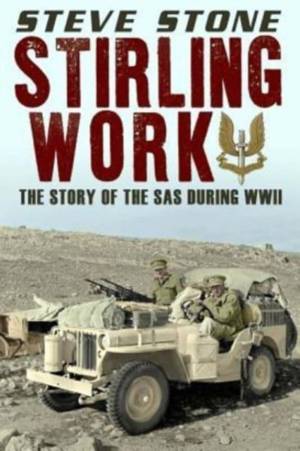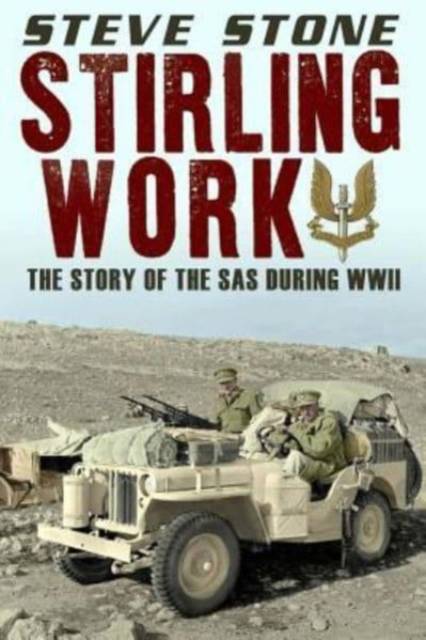
- Afhalen na 1 uur in een winkel met voorraad
- Gratis thuislevering in België vanaf € 30
- Ruim aanbod met 7 miljoen producten
- Afhalen na 1 uur in een winkel met voorraad
- Gratis thuislevering in België vanaf € 30
- Ruim aanbod met 7 miljoen producten
Zoeken
€ 7,95
+ 15 punten
Omschrijving
The SAS was born under the leadership of David Stirling in the Libyan desert in July 1941 often called the 'Originals.' Other legends such as Jock Lewes and Paddy Mayne were pivotal in the early success of the SAS rouge heroes. The very first SAS raid ended without a single hit on the enemy, along with 34 men dead, injured or missing; only 21 returned to base. Using their motto 'Who Dares Wins' the SAS continued to dare with big losses and small gains. In North Africa, the SAS became a nuisance to the enemy. Many aircraft were shot up and airfields temporarily put out of action. In terms of the bigger picture these actions were mere pinpricks than devastating blows but effected moral and security. What the SAS did do during World War Two was to revolutionize the way wars could be fought. What was learnt in those early years of the SAS, proved invaluable for setting up techniques and tactics that are still relevant today. David Stirling's thoughts along with Jock Lewes were to throw out standard military tactics - the SAS was trained to use improvisation rather than follow set military doctrine. Through success and failure the legendary SAS has set the blueprint for other special forces to follow. Stirling Work covers the SAS from their first failed mission, through to the discovery of the horrific Belson death camp at the end of the War.
Specificaties
Betrokkenen
- Auteur(s):
- Uitgeverij:
Inhoud
- Aantal bladzijden:
- 122
- Taal:
- Engels
- Reeks:
Eigenschappen
- Productcode (EAN):
- 9781517217075
- Verschijningsdatum:
- 5/09/2015
- Uitvoering:
- Paperback
- Formaat:
- Trade paperback (VS)
- Afmetingen:
- 152 mm x 229 mm
- Gewicht:
- 172 g

Alleen bij Standaard Boekhandel
+ 15 punten op je klantenkaart van Standaard Boekhandel
Beoordelingen
We publiceren alleen reviews die voldoen aan de voorwaarden voor reviews. Bekijk onze voorwaarden voor reviews.











